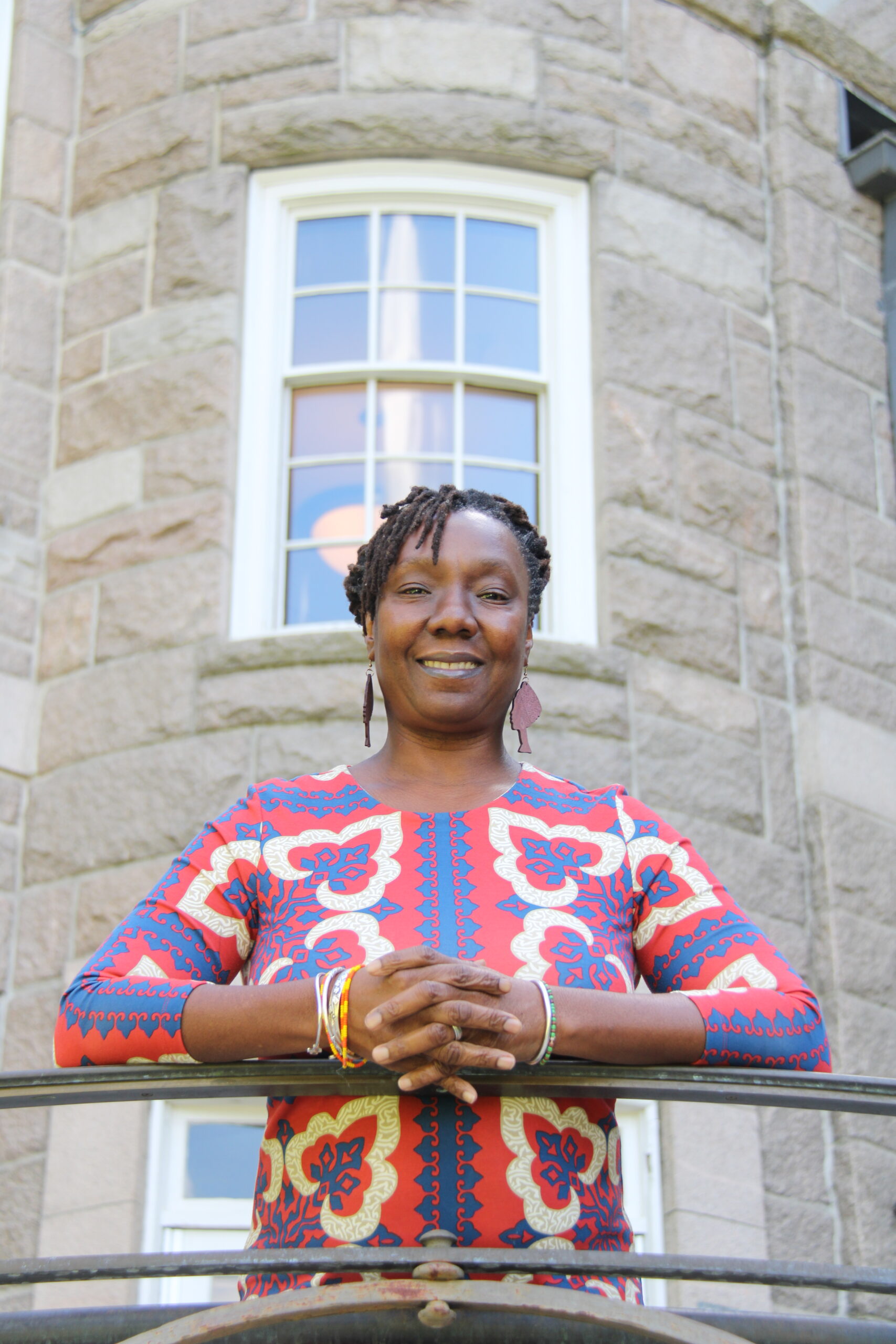The Africana studies department welcomed Catherine John-Camara as its new first permanent chairperson this year. PHOTO CREDIT: Nick Pierson
The department of Africana Studies, which has been at the University of Rhode Island for nearly a full year now, has just named its first permanent chairperson Catherine John-Camara.
“Dr. John-Camara came with an infectious energy and a very acute awareness of what this job requires,” Marcus Nevius, associate professor in the history department and member of the Africana studies department, said.
John-Camara was born in Jamaica and is of Caribbean ancestry. She graduated high school in Medford, Massachusetts and went to Boston College where she worked for three years after graduating with a degree in English. From there, she went on to the University of California, Santa Cruz, where she got her PH.D in literature. Most recently, she was the interim chair of the English department at the University of Oklahoma.
Because of how much time she has spent in the Boston area, John-Camara said she feels that she understands the culture of URI, which was one of the things that attracted her to the school in the first place.
With her approach to the department, John-Camara sees the Africana studies department as a “three cornered hat” with three main areas to focus on.
The first corner of the hat is to help the department recruit, retain and graduate majors, which she referred to as the “academic aspect.”
In doing this John-Camara said she also wants to establish an identity for the program which is unique to URI. She also wants it to incorporate African American history from Rhode Island.
The second corner is communal, in which people involved with the program can come together.
“Most Black studies departments began as a result of student protest,” John-Camara said. “As a result of that, alumni, students of color [and] faculty who chose to teach in the discipline see it as not such an academic place, but also an informal community of sorts.”
The third corner is educational and involves being connected to the University.
She acknowledged that when racist incidents happen at universities, they will often look at Africana studies departments to make statements or look for solutions.
“Whenever there are incidents of racism or discrimination at universities, students and administrators will look to Black studies departments and say ‘you guys going to make some kind of a statement or be involved in whatever solution is being planned?,’” John-Camara said.“Whether Africana studies departments choose to or not, that’s the role they are often thrusted into.”
She pointed to her Caribbean background and growing up in Boston as things that have helped her in this position and her research.
“My research sits in the middle between African-American and African-Caribbean literature and culture,” she said, adding that her main focus has been on the influence of African culture on the descendants of enslaved African-Americans.
Nevius said that the department needs a new vision for its curriculum, which according to both Nevius and John-Camara, meshes well with general education courses.
“The department needs to revise its curriculum so it aligns with gen-eds and create possible new courses for students and faculty,” he said.
The department meshes well with other departments, according to John-Camara, as it involves a lot of critical thinking. She pointed to different courses such as the history of slavery course taught by Nevius and the history of hip hop course taught by the music department. She herself will be teaching a course on African-American cinema in the spring.
As for her plans for the department, she stressed that she has only been here for a month and looks at her planning in three-year intervals.

